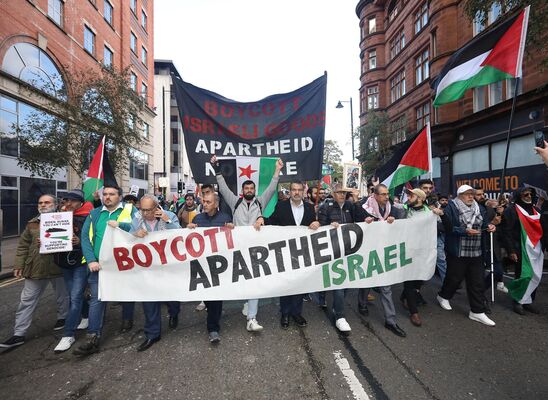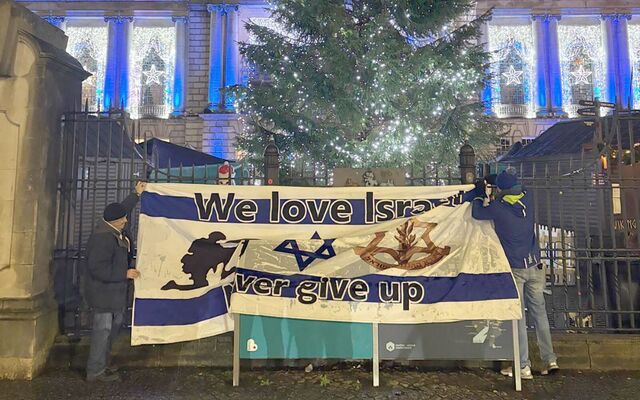SINN Féin opposed the recent attempt by unionists in a recent Stormont debate to append the word ‘innocent’ to the word ‘victims’. The SDLP opposed it too. But it was Alliance – and party leader Naomi Long in particular – who incurred the Biblical wrath of Loyal Ulster.
No change there, because since Naomi ticks two very important Lundy boxes – she’s a Prod and she’s from East Belfast – she comes in for a very intense and a very particular kind of unionist enmity. Michelle O’Neill and Claire Hanna may also refuse to subscribe to the unionist orthodoxy on victims, but that’s to be expected because they’re woke leftist feminazis whose hair smells of Mass smoke. Naomi, on the other hand, grew up in a street without rebels and attended a church without statues, yet she refuses to get on board with the idea that the people in her street and the people in her church get to decide who the victims are.
So blindly triggered are they by the defection of ‘one of our own’ that they fail to realise that in arguing with Naomi over the definition of a victim they are arguing with themselves. For they and Naomi are at one on the issue of non-innocent victims, or should we call them guilty victims and just run with that ultimate contradiction in terms? The DUP, the UUP and Alliance are agreed that, should there be any money up for grabs to improve the lot of victims, those who suffered loss or injury by their own hand or by their own actions or behaviour should not get a penny. But in a slightly surprising display of humanity – or wokery, if you will – the two unionist parties agree with Alliance that all victims, without distinction and without judgement, should have access to trauma-linked treatments and therapies.
So where’s the beef? If Loyal Ulster and Naomi are as one on what victims are entitled to, how come Naomi’s in the crosshairs while Michelle and Claire get a by-ball? Well, that already-mentioned ‘Burn the Lundy’ ethos clearly kicks in, but if we set that to the side for a second we see clearly that when it comes to provision for victims – innocent or otherwise – there is no beef.
Medical and psychological support for all victims: Yes.
Financial pay-out to guilty victims: No.
Which means that this current spat has nothing to do with money or support, and that being the case, we are forced to look elsewhere for an explanation for this latest bout of performative indignation. And that explanation is to be found, as so much so often is, in the need of Loyal Ulster to turn a chaotic historical and political mess into a simplistic morality tale.
It's worth reminding ourselves that the unionist origins story of the Troubles is as pure, undiluted and nonsensical 30-plus years on as it was while the conflict raged: What we saw in 1969 was a mass outbreak of psychopathic violence from a huge collection of blood-soaked serial killers who, in some weird, galaxy-bending freak of eugenics, were born at roughly the same time in the north east corner of a smallish island in the north Atlantic. The fightback against this zombie apocalypse was necessarily messy and brutal from both the state and what a former DUP leader famously described as ‘counter-terrorists’; and while counter-terrorists can never be as bad as yer actual terrorists, if this shaky edifice is to be held together then they must be deemed guilty victims too.
Written down in a single paragraph, that all comes across as the deluded pile of steaming ordure that it actually is. But it remains the official Loyal Ulster Troubles narrative.
To suggest that there was any motivating political or social force behind the collapse of what passed for law and order here in 1969 is to suggest that those who took up the gun were not in fact sectarian psychopaths, and down that road a bit and just over the next hill lies the unconscionable vista of the conflict having been a explosion of justifiable rage at the end of the global Decade of Revolution. And if – perish the thought – we entertain that notion, then while the very concept of innocence and guilt is not swept away completely, then at the very least it is wide open to debate.
And so here we are, watching unionism attempt to distil a roiling cauldron of complex political, historical and social realities into two tiny test tubes of innocence and guilt.
It's a battle that was fought and won in the prisons in the 1970s and 80s at a cost so crippling that it’s still being paid. And it’s a battle being fought 40 years later on the outside, even though it doesn’t have to be fought. For the phrase ‘innocent victim’ is the ultimate tautology, and while redundant phraseology is overwhelmingly accidental, in this case it’s quite deliberately cynical.
A victim, the dictionaries unite to agree, is someone who has suffered injury or loss via another person, thing or agency. If the DUP really wants to separate an IRA bomber who lost an arm in a premature explosion from a shopper who lost an arm in a city centre explosion, then semantic logic dictates that the word ‘victim’ is the problem, not the word ‘innocent’. If the UUP want to separate a UVF killer with night shakes and suicide ideation from a shooting survivor with night shakes and suicide ideation, why are they exercised by the word ‘victim’ being qualified with the word ‘innocent’ in the former case, but not exercised by the word ‘victim’ being used in the first place?
The answer, grim and bleak in its cynical simplicity, is that those sounding off about innocent and guilty victims don’t really care about the subject. Let me say as quickly and as firmly as I possibly can that that does not mean they don’t care about victims. They do. But picking on Naomi Long over a label when they are at one with the Alliance leader on what that label should mean and what it should confer is not a debate being conducted on behalf of victims, innocent or otherwise. It is a debate being conducted to prop up ailing but still necessary lies about legitimacy and vindication.
And so for victims, it is a pointless debate, even if not all victims recognise it as such. And the pointlessness, to wade deeper into the semantic weeds, is precisely the point.








